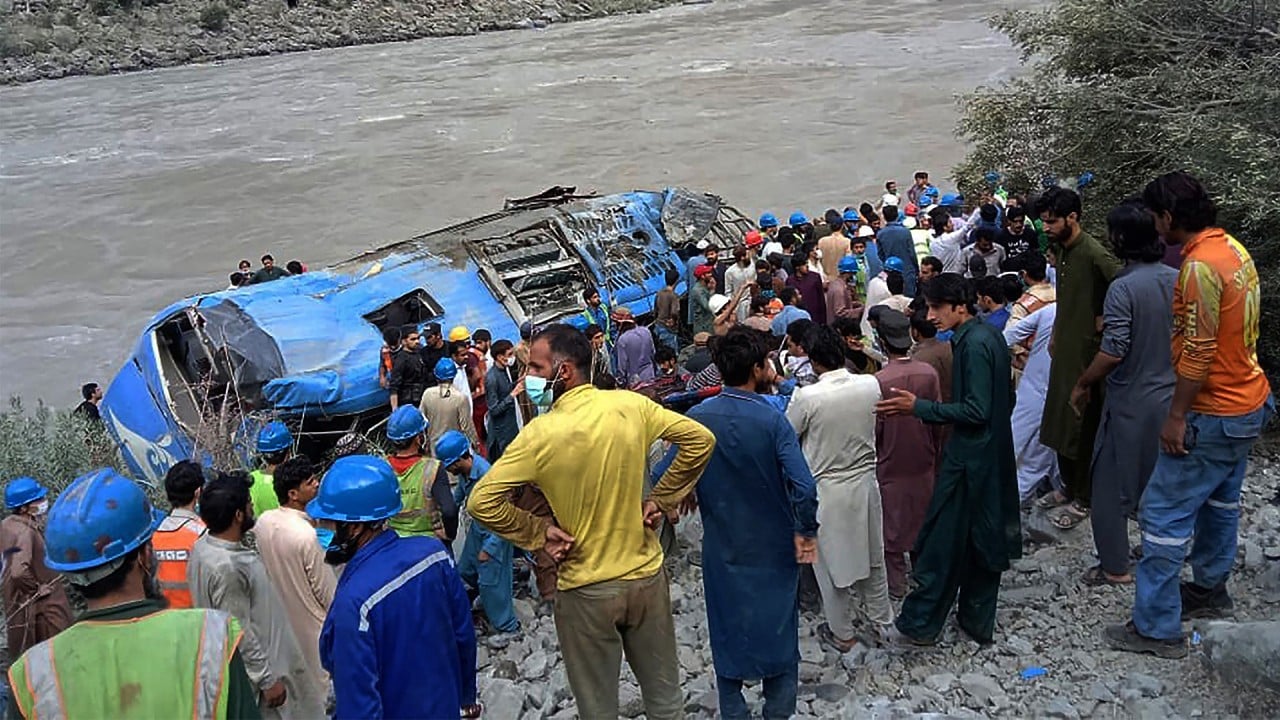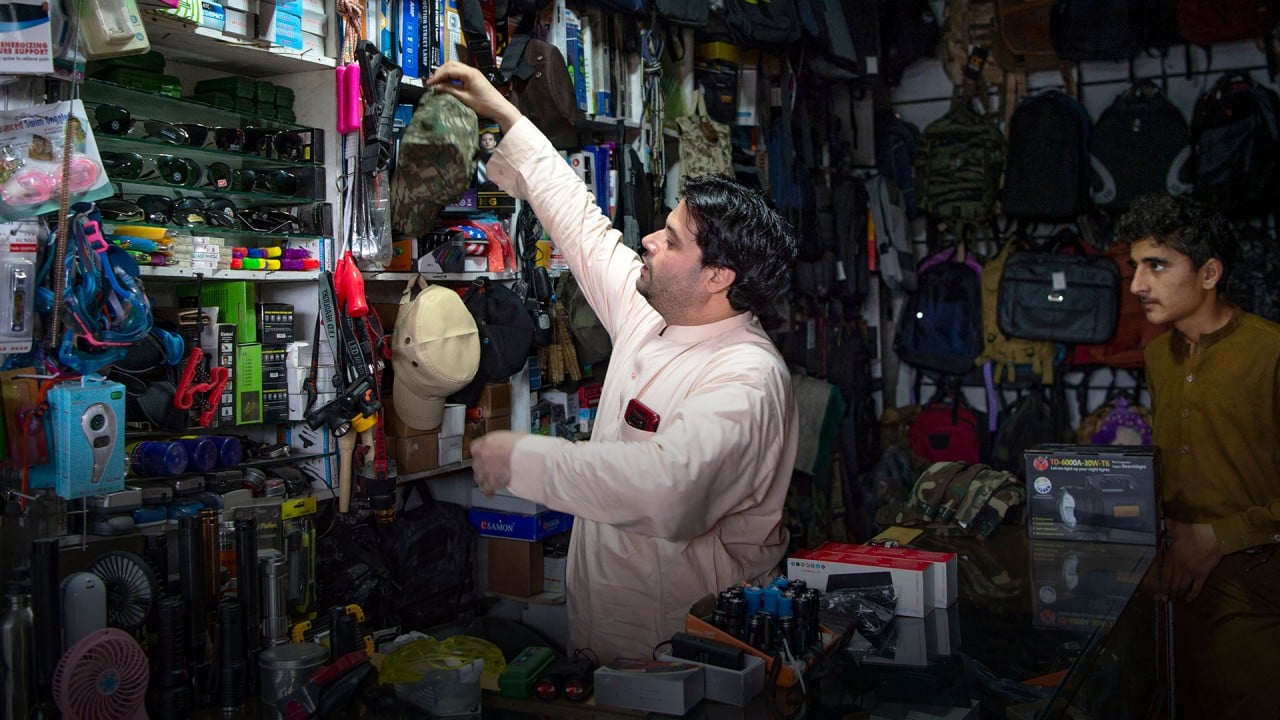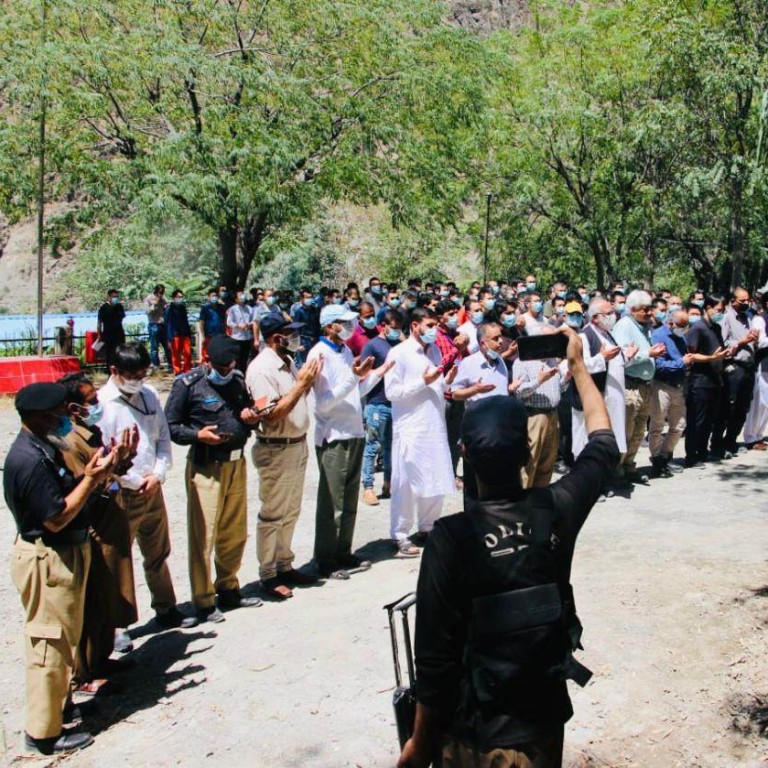
After Dasu bus blast in Pakistan, Chinese workers on go-slow over lax security, terrorism fears
- The July suicide bombing killed 14 people, mostly Chinese workers involved in a hydropower project, and they are reportedly worried about another attack
- Growing insurgencies in Pakistan and the Taliban’s march on neighbouring Afghanistan after the US withdrawal are contributing to the atmosphere of fear
One month after a car suicide bomber attacked a convoy headed for a hydropower project in northern Pakistan, workers for the Chinese companies involved in the dam’s construction are reportedly on tenterhooks and fearful of another terrorist attack.
A local interpreter who works for one of the Chinese firms contracted by the state Water and Power Development Authority (Wapda) said Pakistani mobile army units only provided protection to Chinese staff travelling between the Barseen residential camp and the hydropower project’s various sites outside Dasu town in the remote Kohistan region.
Without consistent army protection at the worksites, senior executives of the Chinese firms have reportedly refused to put their staff at risk and ordered a go-slow, said the interpreter who declined to be named as he was not authorised to speak publicly.
Arif Yousafzai, deputy commissioner for Lower Kohistan district, confirmed this. “Full-fledged activities are yet to be resumed, however the work has not been stopped completely,” he said in response to a local press report stating that China Gezhouba Group Corp (CGGC) had refused to resume work at Dasu.
The contractors’ concerns prompted the World Bank, the major overseas financier of the project, to send officials to Dasu, where they spent August 3-7 assessing security arrangements and the technical status of the hydropower project.
Pakistan uses army to protect projects with Chinese workers after Dasu bus blast
“Everybody is scared that there could be another attack, that they could be killed,” said the interpreter. “Everybody is suspicious of everybody, even colleagues who have known each other for several years. They are scared that a colleague might be a terrorist facilitator,” he said, adding: “I am, too.”
Joint investigations into the July 14 attack are under way, but Pakistan’s government did not disclose any findings until Thursday.
Addressing a press conference in Islamabad, chief of the Khyber Pakhtunkhwa provincial counterterrorism police department Javed Iqbal said the suicide car bombing was planned and executed by Pakistani Taliban militants from safe havens in Afghanistan.
Iqbal said the silver Honda Accord sedan car used in the attack was smuggled into Pakistan from Afghanistan last year and purchased from Swat, which neighbours Kohistan, by a terrorist facilitator last November.
This Week In Asia published photographs of the car on August 1. Because of the low resolution of the photos, we mistook it for a smaller Honda City saloon.
Iqbal identified the driver as Khalid alias Sheikh, but said fingerprints obtained from fingers of the suicide bomber did not match biometric records maintained in Pakistan’s national identity card database.
This Week in Asia also published a photo of a silver Toyota Corolla suspected of being used by two men thought to have supervised the suicide bomber.
The counterterrorism police chief identified one of Khalid’s handlers only as an Afghanistan-based member of the Pakistani Taliban named Tariq, who was said to have left Pakistan shortly after the July 14 attack.
Pakistani officials have otherwise been cagey about commenting about the investigation.
In a statement issued in response to the press conference, the Tehreek-e-Taliban Pakistan (TTP) once again denied any involvement in the Dasu attack.
“We want to send a clear message to the Chinese government that the TTP is with them. There is no problem with them and no intention to attack them.”
On August 4, Chinese managers unveiled a commemorative plaque at the Barseen camp, which stated that 14 people had died.
Previously, official confirmation was that 12 were killed in the attack, including nine Chinese nationals. However, the names on the plaque said 10 were Chinese, one was a Pakistani employed by the CGGC, two were paramilitary soldiers guarding them, and one was a private vendor taking a lift to a worksite.
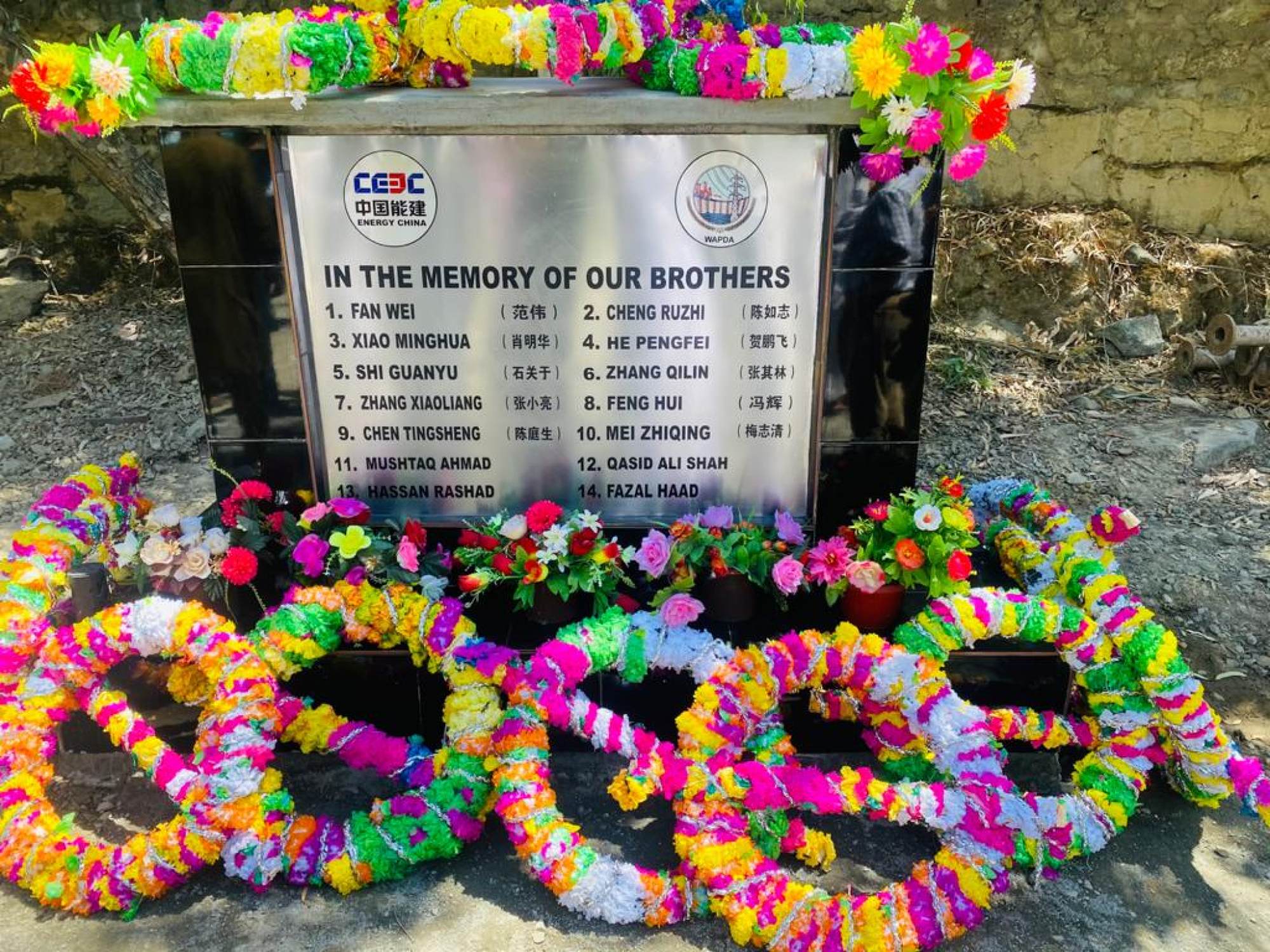
ONGOING ATTACKS
The atmosphere of fear among workers at the Dasu hydropower project has been fuelled by a rise in insurgencies in Pakistan. Since May 1, the TTP and various militant groups have carried out about 180 attacks, largely against security forces.
Many of the attacks were in erstwhile TTP strongholds in the tribal districts of Khyber Pakhtunkhwa province, of which Kohistan is part. Others took place in Balochistan, a western province housing the Chinese-operated port of Gwadar, where rebels are seeking independence.
The resurgence of terrorist attacks comes as US forces withdraw from areas of southern and eastern Afghanistan where the TTP and other Pakistani insurgent groups have safe havens, and now can operate with freedom.
Two of the attacks specifically targeted Chinese nationals – the Dasu attack and a drive-by shooting in the Arabian Sea port city of Karachi on July 28 that injured a Chinese man.
Chinese worker wounded by gunmen in Pakistan’s Karachi
The Barseen residential camp is currently protected by a small detachment of Frontier Corps paramilitary troops and private Pakistani security guards employed by the contractors, as was the case before the July 14 attack, said the interpreter.
Police and district administration officials confirmed this.
The interpreter and community activist Hafeez-ur-Rehman, who visits the Barseen camp to hold meetings with Chinese managers, described how security was lax at the camp. There were no electronic scans of people and baggage entering the camp’s two gates, which open directly onto the Karakorum Highway, a 1,300km thoroughfare that starts in Pakistan and crosses into China. Guards did not maintain a written record of non-staffers entering the premises and did not search them, while people were allowed access on the verbal approval of employees of the Chinese firms.
A false sense of peace and security resulting in lax and complacent security measures
A Dasu-based police inspector who asked not to be named said the managers of the Chinese contracting firms and the foreign-staffed Dasu Hydropower Consultants (DHC) group had allowed poor security practices to continue at the camp.
Given the threat of militancy, the police should have vetted all non-local Pakistani staff and vendors before giving them clearance to enter the camp and worksites, he said.
He added that Chinese and other foreign contractors were allowed to go shopping in Dasu’s Komila market area accompanied only by paramilitary troopers instead of such visits being coordinated by police and the district administration. Chinese nationals working at Dasu also bought SIM cards from their colleagues and used them despite being told this practice was illegal, as cards are biometrically registered to purchasers to prevent their use by terrorists.
LABOUR
The inspector blamed the territorial behaviour of Dasu-based Wapda managers. The federal organisation, which is led by retired army officers, has overseen the hydropower project since 2012, whereas the police work for the Khyber Pakhtunkhwa provincial government.
“The Wapda bosses insisted on doing things their way, as is the wont of army officers,” the police officer said. “When the foreign contractors and consultants saw that, they followed suit. Everybody just did what they wanted to.”
But community activist Hafeez and fellow activist Abdul Jabbar alleged the police themselves had tried to benefit from what they perceived to be lax security procedures. Two deputy superintendents in the Lower Kohistan district, for example, had persuaded company managers to hire their brothers.
The activists said they tracked such practices as they maintained records to ensure adherence to a December 2016 agreement under which Wapda and its contractors and consultants agreed to prioritise the hiring of Kohistan residents for all positions they are eligible for.
Chinese firms’ security in Pakistan must improve, say analysts
The agreement was struck after three months of protests over the employment of outsiders brought work at the hydropower project to a grinding halt.
As of December 2020, more than 1,600 local residents had been hired, many at the request of the 80-member tribal council which represents the people of Kohistan in negotiations with the government and foreign firms in the region.
But accusations of nepotism in the hiring of labourers and non locals for jobs not requiring technical training remain, with protests breaking out last December and again in February.
At an August 4 meeting of officials and influential locals called by Brigadier Habib Ullah, the newly-appointed army commander for the region, community activists blamed the influx of non-local workers into Kohistan and nepotism for creating security gaps that terrorists exploited on July 14.
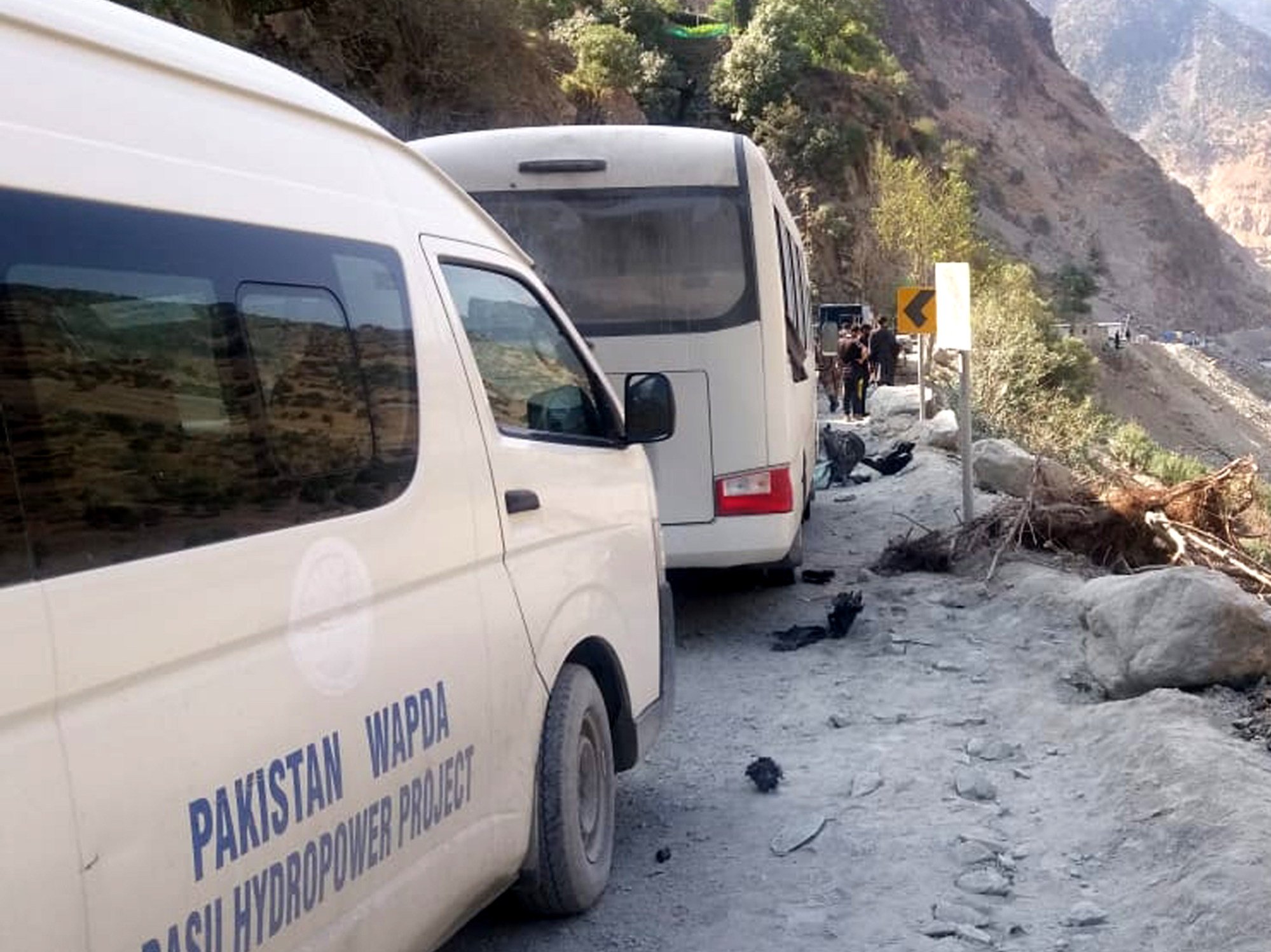
OPPORTUNITIES
The hundreds of jobs generated by the Dasu hydropower project and the Diamer-Bhasha Dam being built 78km to the north are a once in a lifetime opportunity for Kohistan’s mostly impoverished 300,000 residents, according to the community activists, government administrators and police officers, Dasu project executives and bank managers who spoke to This Week In Asia.
Located 217km from the nearest city, Abbottabad, and connected to Pakistan’s highway network by a single road, Kohistan is isolated by its inaccessible mountain terrain. It is not connected to the national power grid and mobile network coverage is patchy.
The rocky soil is poor and unstable, and landslides are a regular occurrence, making life especially difficult for those eking out a living as subsistence farmers. Between their crop planting and harvesting cycles, many of the mostly illiterate residents migrate to Pakistan’s cities to work as unskilled daily wage labourers.
The sudden availability of hundreds of jobs coincided with the acquisition of thousands of acres of land for Dasu dam by Wapda, which has made millionaires out of paupers.
Suicide bomber was behind Pakistan blast that killed 9 Chinese workers: editor
A Dasu-based bank manager said an office assistant earning the minimum legal wage of about US$100 a month resigned recently after his extended family was paid a whopping US$1.8 million for the mountain it had owned for generations.
With such vast sums at stake, negotiations between Kohistan’s tribal council and the Wapda officials overseeing the land acquisition proved to be just as contentious as the hiring of non-locals and nepotism.
In a meeting with the deputy commissioner of Lower Kohistan Arif Yousafzai in February, representatives of the tribal council alleged that some lots of land were falsely classified as being under cultivation during a survey of the dam worksite conducted for Wapda by the DHC consultancy group.
In terms of the compensation agreement reached in 2018, arable land attracts about 350 per cent higher value than land classified as accessible but not cultivated. And inaccessible land such as sheer rock faces is worth about 75 per cent less than non cultivated accessible land.
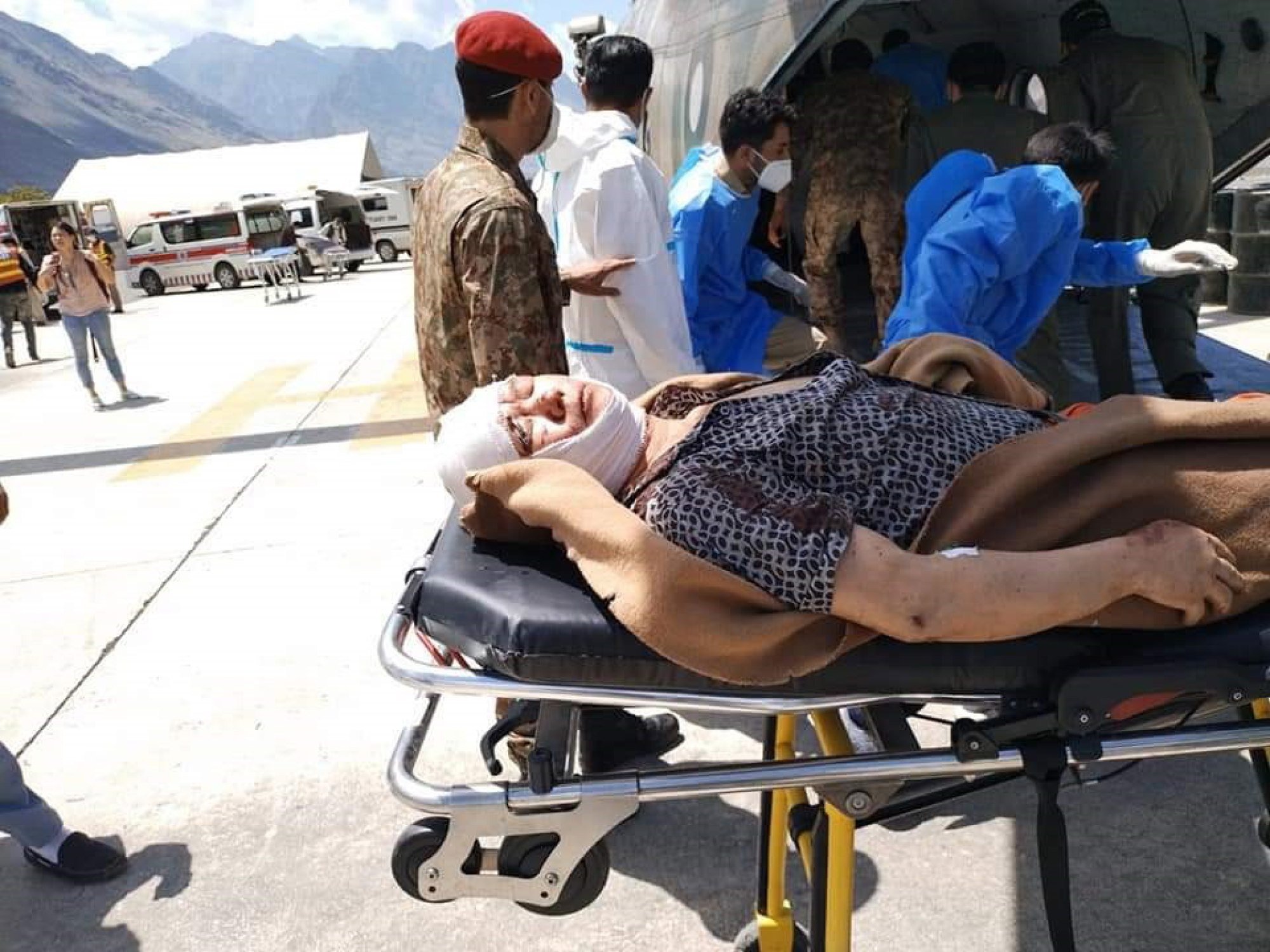
The explosion of wealth arising from the hydropower project has turned Dasu from a small, sleepy town into a booming, well-stocked bazaar full of businesses owned by people from adjoining districts.
Most Pakistani banks have opened branches to capture deposits from Kohistan residents enriched by land compensation payments and people and firms employed by the Dasu dam.
Two bank managers said each of the branches recently opened in Dasu currently holds about 1 billion rupees (roughly US$6 million) in deposits.
But the gold rush is not expected to last beyond the completion of the hydropower project, scheduled for 2025.
“Then the business opportunities will be over and the bank branches will close,” the banker said.
SECURITY SITUATION
At least a dozen people interviewed by This Week In Asia agreed that the make-hay-while-the-sun-shines atmosphere in Dasu had clearly distracted the focus away from security, making it relatively easy for the terrorists to strike on July 14.
Abdul Basit, an associate research fellow at the S. Rajaratnam School of International Studies in Singapore, said the decline in terrorist attacks in Pakistan between 2015 and 2020 created “a false sense of peace and security resulting in lax and complacent security measures, resulting in gaps and poor implementations of the standard operating procedures”.
He said the resurgence of the TTP and Baloch separatist groups is part of the evolving geopolitical and security situation in the region.
“Pakistan will have to fight its war on terror both at the operational and discursive level to manage the internal security threat,” he said, particularly related to the US$65 billion China-Pakistan Economic Corridor (CPEC) and other Chinese interests in the country.
Growing chaos in Afghanistan is bad news for CPEC and China’s interests in the region
The Afghan Taliban is fighting the most important phase of its 20-year struggle, he said. But US air strikes conducted by B-52 bombers entering Afghanistan’s airspace via an air corridor provided by Pakistan are slowing its momentum.
“It is quite possible that the Taliban might be urging the TTP to increase the costs for Pakistan for allowing its airspace to be used against the group in Afghanistan,” Basit said.
Whether arising out of the Taliban’s territorial gains and the US air strikes or the increasing TTP attacks in Pakistan, “growing chaos in Afghanistan is bad news for CPEC and China’s interests in the region”, he said.



